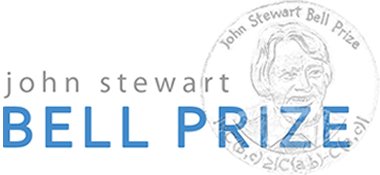| Quantum Computing Prize Awarded |
| Written by Sue Gee | |||
| Friday, 05 April 2024 | |||
|
John Preskill, Professor of Theoretical Physics at the California Institute of Technology, is the eighth recipient of the John Stewart Bell Prize for Research on Fundamental Issues in Quantum Mechanics and Their Applications.
The "Bell Prize" is funded and managed by the University of Toronto Centre for Quantum Information and Quantum Control (CQIQC). It was established in 2009, and is awarded every odd-numbered year, for significant contributions first published in the preceding 6 years. The award is meant to recognize major advances relating to the foundations of quantum mechanics and to the applications of these principles. It is not intended as a "lifetime achievement" award, but rather to highlight the continuing rapid pace of research in the many areas of quantum mechanics and the fruitful interplay of fundamental research and potential applications and covers goth theoretical and experimental contributions. The prize is named for John Stewart Bell (1928 – 1990), a physicist from Northern Ireland who showed how to prove the existence of quantum entanglement, or strong correlations between the physical states of quantum systems, even when they’re separated by great distances. Bell's career began with the UK Atomic Energy Research Establishment and in 1960, he moved to work for the European Organization for Nuclear Research (CERN). While working almost exclusively on theoretical particle physics and accelerator design, Bell found time for his personal interest, investigating the foundations of quantum theory. During a year's leave for CERN spent at Stanford University, the University of Wisconsin, Madison and Brandeis University, he wrote a paper entitled "On the Einstein–Podolsky–Rosen paradox". This included what is now know as Bell's theorem, which encompasses a number of closely related results in physics, all of which determine that quantum mechanics is incompatible with local hidden-variable theories.
John Preskill, who is both a Caltech professor and an Amazon Scholar, has been awarded the Bell Prize for applying both classical and quantum computing to the problem of learning from quantum experiments. The citation reads: for developments at the interface of efficient learning and processing of quantum information in quantum computation, and following upon long standing intellectual leadership in near-term quantum computing. According to the Bell Prize Selection Committee, in a series of paper with several coauthors, Preskill had done the following:
Preskill will be presented with the prize in August 2024, at the 10th International Conference on Quantum Information and Quantum Control. More InformationPreskill wins prize for work on learning and quantum computing Related ArticlesPeter Shor Gains Frontiers Of Knowledge Award Quantum Computers Really Are A One Trick Pony ACM Awards For Contributions in AI and ML Kunle Olukotun Receives 2023 ACM Eckert-Mauchly Award To be informed about new articles on I Programmer, sign up for our weekly newsletter, subscribe to the RSS feed and follow us on Twitter, Facebook or Linkedin.
Comments
or email your comment to: comments@i-programmer.info |
|||
| Last Updated ( Friday, 05 April 2024 ) |



